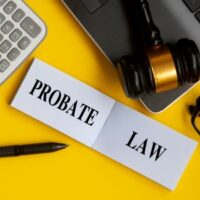The Role of “Domicile” in a Florida Probate Proceeding

At Bleakley Bavol Denman & Grace, we understand that estate administration is all about the legal details. For example, when it comes to administering a probate estate, the first thing that needs to be established is the deceased person’s “domicile.” In simple terms, domicile refers to a person’s legal residence. While many people have more than one home they use regularly, they can only have one domicile–and if their domicile is in Florida, that is where their probate estate is based.
Estate litigation over questions of domicile can sometimes arise in Florida due to the fact that many people who live and own property are residents of another state or country. Even when a deceased person was a non-Florida domicile, however, a Florida probate court may still need to exercise limited jurisdiction over that person’s estate if they owned real estate in Florida.
Florida Probate Court Still Had Jurisdiction Over Jamaican’s Broward County Properties
A recent decision from the Florida Fourth District Court of Appeals, Markes v. Markes, helps to illustrate this point. This case involved the estate of a man named Keith Markes, who died in 2023. Markes was born in Jamaica and remained a Jamaican citizen throughout his life. At some point he moved to New York City and lived there for several years. During his time in New York, he expressed a desire to eventually retire to either Florida–he owned several pieces of real estate in Broward County–or Jamaica.
Unfortunately, Markes suffered multiple strokes in 2017, which left him in an assisted living facility in New York. One of Markes’ children subsequently sought and obtained a guardianship to manage their father’s property. Markes himself continued to live in New York until 2020, when he returned to his native Jamaica and remained there until his death.
Markes’ child then filed a petition to probate his father’s estate in Florida. The petition stated Markes was domiciled in Broward County at the time of his death. The probate court granted the petition. Sometime later, another interested person–an heir disinherited by the will–moved to revoke probate and transfer the estate to New York, as that was Markes’ proper domicile.
The probate court granted this request, but on appeal the Fourth District reversed. It held that neither Florida nor New York constituted Markes’ domicile when he died. Rather, it was Jamaica. That said, the Florida probate court still had jurisdiction over Markes’ estate as it related to his Broward County property. Indeed, the probate court had “no authority” to transfer a Florida probate estate to New York, especially since no probate estate for Markes is open in that state.
Contact a Tampa Estate Litigation Attorney Today
One way to avoid this sort of jurisdictional confusion is to transfer your property into a living trust while you are still alive. Property in trust can avoid probate, which makes the question of your domicile at the time of death irrelevant. Your successor trustee simply administers and distributes your property as directed by the trust.
If, on the other hand, you are currently involved in a probate dispute similar to the one discussed above, it is best to speak with our qualified Tampa estate litigation attorneys who can advise you on your next steps. Contact Bleakley Bavol Denman & Grace today to schedule an initial consultation.
Source:
scholar.google.com/scholar_case?case=2554633423901496959